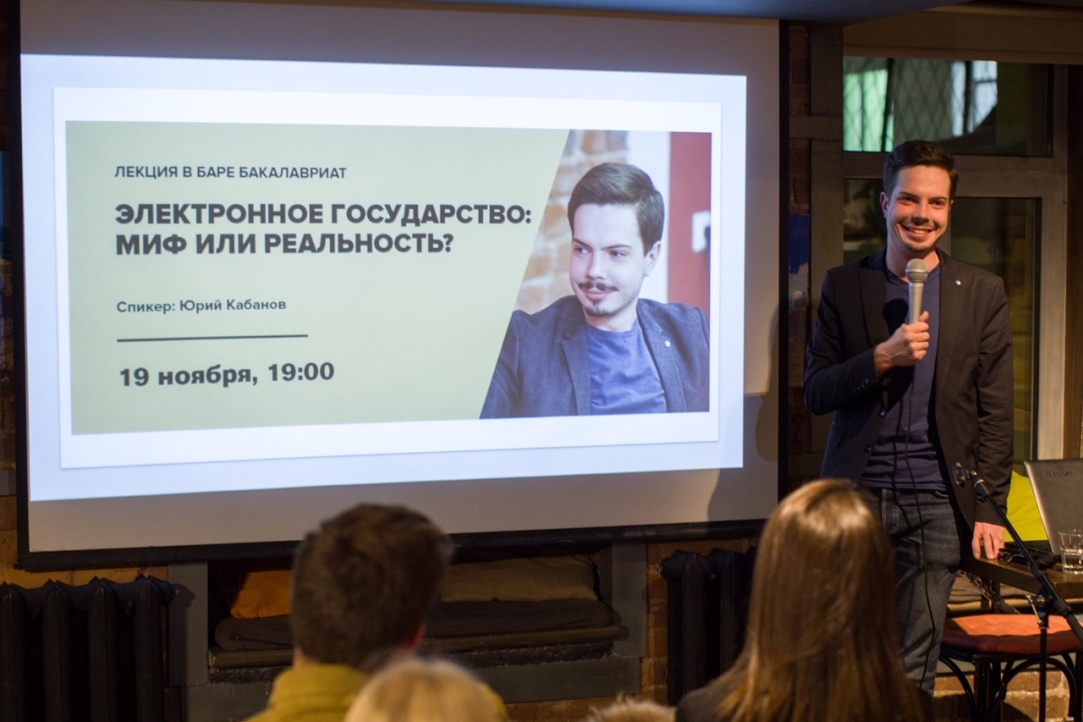Festival “Back to the Future”: How Has Life in Russia Changed over the Last 20 Years?

This year Saint-Petersburg campus of HSE celebrated its 20th anniversary. Due to this date the festival called “Back to the future” took place from the 19th to 21st of November and held 9 very interesting meetings at various locations such as bar “Bakalavriat”, bar “Jawsspot” and cafe “Granola”. The topics of lectures were diverse and comprehensive but all connected with the changes within society, culture and politics that have occurred over the last 20 years.
All meetings were conducted by professors of different departments of HSE. During lectures the speakers were trying to answer on following questions:
- How has our country changed under the influence of economic crises?
- What is the true meaning of international sanctions?
- How did the Internet turn from a beneficial tool into an ordinary thing?
- Has education become free?
- Does e-democracy exist in Russia?
- What is modern art in Russia?
I attended 2 lectures, which I would like to tell you more about.
E-government: Myth or Reality?
First one is the lecture about e-government that were held by Yury Kabanov, a senior lecturer of the Department of political science at the HSE in St. Petersburg. At this meeting we were trying to understand what was happening with the e-politics in Russia in last 20 years.
Professor started with the development of the Internet as a whole and particular in Russia, then discussed the influence of electronic technologies on politics, talked about e-governments across the world, provided cases of well-developed e-services in Saint-Petersburg and concluded the lecture with a forecast of the future development of e-government in Russia.
At the lecture we learnt different interesting and valuable facts, such as Estonia is the leader among e-governments or Singapore’s experience of e-government inspired the development of electronic services in Russia.
Besides, after the lecture everyone left with the understanding of differences between e-administration, e-services and e-democracy. The lecture was very interesting, so everyone listened to it thoughtfully and carefully.
Foreign Policy of Russia: Defense or Offense?
Second lecture by Ivan Grigoriev, a senior lecturer of the Department of political science at the HSE in St. Petersburg, was about foreign policy of Russia. During the meeting we tried to understand why and how Russia has conducted external policy over the last 20 years. The main question around which the lecture was structured was: defense or attack?
Professor told us about the importance of certain personalities in Russian politics and their influence on our relations with other countries like presidents Yeltsin, Putin and Medvedev or ministers of foreign affairs Primakov, Kozyrev and Lavrov.
Speaker paid much attention to shifts in Russian external policy with the Western countries, defining and explaining these changes through the comparison with a “pendulum”. Mr. Grigoriev outlined major moves of this pendulum and discussed causes and reasons why Russia sometimes chooses friendly behavior and cooperation, while in other cases goes back to national interests and conducts aggressive international policy.
During the lecture we analyzed several important events that occurred in the international arena and affected Russia, for instance, conflict in Kosovo, the wars at Chechnya, military operations in Iraq, revolts in Georgia and Ukraine.
The idea to hold lectures outside the university, bring together students and professors in bars and cafes is very interesting and successful, because the atmosphere of such meetings is informal and inspires students and other participants to deeper and more active involvement in the discussion. After the lectures participants had an opportunity to ask questions, argue with the speaker, express themselves and his/her opinion on the topic.
Text by
Ekaterina Srebrodolskaya
Ivan Grigoriev
Senior Lecturer
Yury Kabanov
Senior Lecturer
